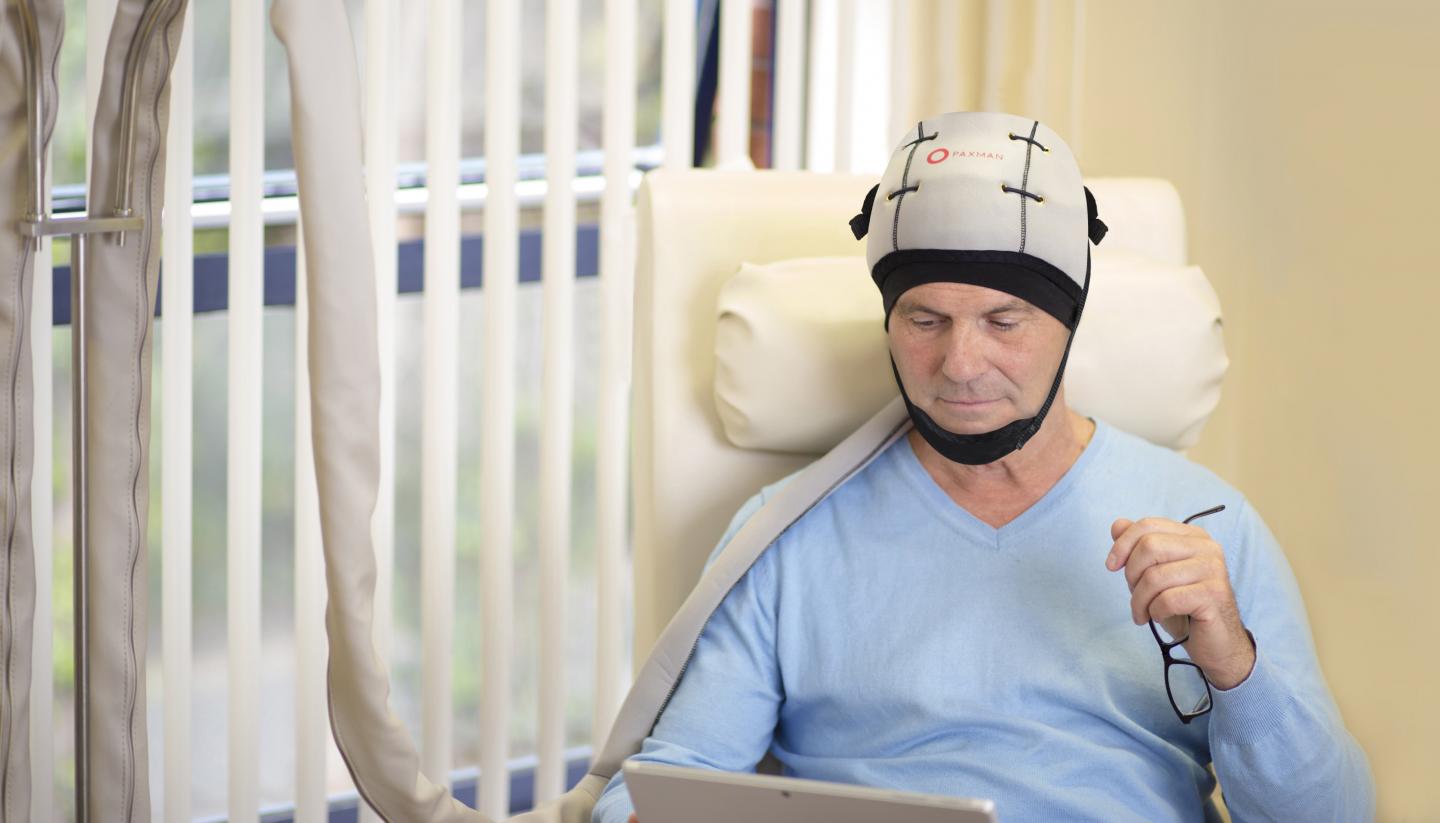The £1 million project will be a collaboration between pioneering technology company PAXMAN and the University of Huddersfield and will see the creation of the PAXMAN Scalp Cooling Research Centre

Credit: PAXMAN
A MAJOR global healthcare technology company, which has a long-standing research history with the University, is to create a dedicated research centre to benefit cancer sufferers.
PAXMAN and the University of Huddersfield have signed a five-year research and collaboration agreement covering the PAXMAN Scalp Cooling Research Centre, a new multi-disciplinary research group based at the University. The Centre will focus on biological hair follicle research as well as developing innovative scalp cooling-related treatments and individual 3D-printed cooling caps.
The £1 million investment, in cash, staffing and other resources over the period, will come from both organisations and the European Union have added a financial grant of £100,000.
Initially, the Centre will focus its work on three key projects:
- biological research using the most clinically-relevant in vitro models – cultivated human hair follicles;
- development of a topical product with the potential to substantially enhance the effect of scalp cooling – the enhancement effect of the product has already been proven in initial in vitro tests;
- development of a novel, environmentally-friendly ecosystem for 3D-printed individual cooling caps ready for mass production.
One of the key drivers behind work has been PAXMAN’s CEO Richard Paxman, who is very enthusiastic for the creation of the Centre: “The launch of the PAXMAN Scalp Cooling Research Centre is a historic event in the scalp cooling sector that will take our existing R&D projects to a whole new level.
“PAXMAN will now become the only hair loss-preventing scalp cooling provider firmly based on biological research. We are also taking an important step towards achieving our long-term Zero Hair Loss vision,” he added.
The work will see researchers collaborating across two of the University’s schools of study, the School of Applied Sciences and the School of Art, Design and Architecture.
Work will get under way immediately and in a joint statement the Deans of each School, Professors Michael Ginger and Mike Kagioglou, said: “The University and PAXMAN are now creating the foundation for a new era in the exciting and important field of multi-disciplinary scalp cooling and hair follicle research. The aim of the PAXMAN Scalp Cooling Research Centre is to become a global leader in its field, pushing the boundaries of human knowledge while also developing cutting-edge products.”
###
Media Contact
Jayne Amos
[email protected]
Original Source
https:/




